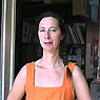 Barbara Borčić (1954)
Barbara Borčić (1954)
Graduated with B.A. in art history from the Ljubljana Faculty of Arts. Since 2000 director of SCCA-Ljubljana, Center for Contemporary Arts.
Active in the field of contemporary arts as a free-lance curator, publicist and editor.
Member of AICA, International Association of Art Critics and IKT, International Association of Curators of Contemporary Art.
In frame of SCCA Borčić conceived and edited the documentation, archival and research project on video art in Slovenia under the title Videodokument. Video Art in Slovenia 1969-1998 (available also on www.videodokument.org). She is also curating video programs under the title Videospotting and writing about video (in English: ‘From Alternative Scene to Art Video’, in Reader V2_East Meeting, No. 1, Rotterdam, 1996; ‘Video Art from Conceptualism to Postmodernism’, in Impossible Histories: Historical Avant-Gardes, Neo-Avant-Gardes, and Post-Avant-Gardes in Yugoslavia, 1918-1991, MIT Press, Massachussetts, 2003). She was a project leader of curated web project Internet Portfolio, research projects What Is to Be Done with the Balkan Art and What Is to Be Done with the Audiovisual Archives, and editor of PlatformaSCCA magazine.
From 1980 on she worked in Škuc Gallery, Ljubljana and was the artistic director of the gallery 1982-1985. Between 1982 and 1992 she was involved in video practice in frame of ‘Ljubljana alternative scene’ and collaborated on several art and documentary video projects. 1991-1992 she was editor-in-chief of the fine arts magazine Likovne besede (Art Words).
From 1993 she was an assistant to the director, from 1997 the director of the Soros Center for Contemporary Arts – Ljubljana.
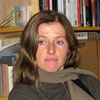 Eda Čufer (1961)
Eda Čufer (1961)
Dramaturg, curator and writer. Her texts on theatre, dance, visual arts, culture and politics have been published in numerous publications at home and abroad.
In the 80’s, she collaborated as dramaturg with the director Dragan Živadinov. In 1983, she was co-founder of the Theatre of Sisters of Scipion Nasica. In the 90’s, she collaborated as dramaturg with choreographer Iztok Kovač and his dance company En-Knap as well as with director Marko Peljhan in the frame of Project Atol. Between 1991 and 1999, she collaborated as dramaturg with the group IRWIN on projects that dealt with a new perception and understanding of relations between the West and the East in the period of post-Socialism. In the frame of these projects, she was editor of numerous books and catalogues: NSK Moscow Embassy: How the East Sees the East, 1992; Transnacionala: Highway Collisions Between East and West at the Crossroads of Art, 2000; Interpol: The Art Exhibition Which Divided East and West, 2001. She co-curated the exhibitions: In Search of Balkania, Neue Galerie, Graz, Austria, 2002 and Call me Istanbul, ZKM, Karlsruhe, Germany, 2004 (both together with Roger Conover and Peter Weibl).
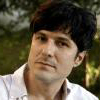 Branislav Dimitrijević (1967)
Branislav Dimitrijević (1967)
Art historian, critic and curator. He received his degree in Art History at the University of Belgrade and received his M.A. in 1995 in History and Theory of Art at the University of Kent, under the mentorship of Professor Stephen Bann.
He publishes texts on contemporary art and politics in Serbia in local and international magazines and catalogues. In 1996, he edited Pop Visions, a book on the interpretation of popular images. He writes essays for catalogues of numerous artists, among other, Zoran Naskovski, Milica Tomić, Zdravko Joksimović, pRT.
Together with Branislava Anđelković, he was curator and catalogue editor of numerous exhibitions: among other, A Room With Maps (1995), Murder1(1997), Beauty and Terror (1998) and Overground (1998). He is one of co-founders of the School for History and Theory of Art in the Contemporary Arts Centre-Belgrade. He was director of the Department of Education and Documentation of the Contemporary Arts Centre in Belgrade.
From 1999 on, he teaches on conceptual art and image perception. He also taught at the Faculty of Philosophy in Belgrade and the Michaelis School of Arts in Cape Town. He participated in conferences and discussion in Canterbury, Stockholm, Innsbruck, Ljubljana, Skopje, Oslo…
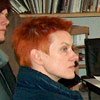 Urška Jurman (1973)
Urška Jurman (1973)
Art historian and sociologist of culture. She collaborated thus far with ŠKUC Gallery (1995-97), SCCA -Ljubljana (1999-2002, 2005-2006), Hexpo Festival (2000), Break 2.2 Festival (2003). She publishes texts on contemporary art in printed and electronic media. She was co-editor of contemporary arts review Platformascca (2000-). In 2005/2006, she was Head of World of Art, School for Contemporary Arts at SCCA –Ljubljana. From 2005 on, she collaborates as curator with the Centre and Gallery P74 in Ljubljana.
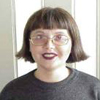 Suzana Milevska (1961)
Suzana Milevska (1961)
Visual culture theorist and curator and currently works as a Director and Lecturer in Visual Culture at the Visual and Cultural Research Centre “Euro-Balkan” Institute in Skopje. She received her PhD at the Visual Culture Department at Goldsmiths College in London. In 2004 she was a Fulbright Senior Research Scholar at Library of Congress and she also received P. Getty Curatorial Research Fellowship (2001) and ArtsLink Grant (1999). Since 1992 she curated over 70 art projects in Skopje, Istanbul, Stockholm, Berlin, Bonn, Stuttgart, Leipzig, etc. She was one of the curators of the Cosmopolis Balkan Biennial in Thessalonica (2004) and of the International Biennale of Contemporary Art 2005 – National Gallery in Prague. Her publications include “From a Bat’s Point of View” in Eduardo Kac, edited by Peter Tomaž Dobrila and Aleksandra Kostić (Maribor, 2000), 47-58; Capital and Gender, edited by Suzana Milevska (Skopje, 2001); “The Readymade and the Question of Fabrication of Objects and Subjects” in Primary Documents – A Sourcebook for Eastern and Central European Art since the 1950s (New York, 2002), 182-191; “The portrait of an artist as a young ‘strategic essentialist’” in Tanja Ostojić – Strategies of Success / Curators Series 2001-2003, (Belgrade, 2004), 33-43; “Curatorial Labyrinths in Macedonia”, Men in Black – Handbook of Curatorial Practice, Ed. Christoph Tannert/Ute Tischchler, Kűnstlerhaus Bethanien (Berlin, 2004). “Hesitations, or About Political and Cultural Territories” in Cultural Territories, edited by Barbara Steiner, Julia Schäfer and Ilina Koralova (Köln, 2005), 31-43; “Is Balkan Art History Global” in Is Art History Global, edited by James Elkins, (New York, 2006), “Resistance that Cannot Be Recognised as Such – interview with Gayatri C. Spivak” in New Feminism: worlds of feminism, queer and networking conditions, Löcker Verlag (Vienna, in print).
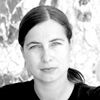 Saša (Glavan) Nabergoj (1971)
Saša (Glavan) Nabergoj (1971)
Art historian., curator and critic. Assistant director at SCCA, Center for Contemporary Arts – Ljubljana. A member of AICA (International Association of Art Critics). A member of editorial board of Maska, Performing Arts Journal.
Member of the pedagogical team at Museum of Modern Art Ljubljana (1995 – 1997). Collaboration on exhibition projects in National Gallery in Ljubljana (1996 – 1997). Assistant of art director in Gallery Škuc, Ljubljana (1997). Collaborator of Soros Center for Contemporary Arts – Ljubljana (1997 – 1999). From 2000 employed by SCCA, Center of Contemporary Arts – Ljubljana. From 1995 publishes texts, critics, essays on the contemporary art and culture in various Slovene and international art magazines and newspapers (catalogues of Gallery Škuc, publications of multicultural center Metelkova, art magazines FlashArt/Italy, USA, Umelec/Czekia, Zarez/Croatia, M’ars/Slovenia, daily newspapers Večer, Delo,…). In 1999 and 2000 worked as collaborative researcher in the research project Problematic of space within alternative culture, ordered and financed by Cultural Department of the City of Ljubljana, Slovenia. From 2001 to 2004 acted as vice president of ICAN (Internationals Contemporary Arts Network). Since 2003 contributing editor of Praesens, magazine of contemporary art in central Europe.
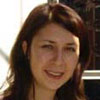 Nataša Petrešin (1976)
Nataša Petrešin (1976)
She received her degree in Comparative Literature and Art History at the Faculty of Arts in Ljubljana. She wrote poetry and published it in the magazines Zofa, mentor and Apokalipsa. She was co-organiser of Round Table discussions and exhibitions within the frame of Youth Club in Cankarjev dom. From 1997 on, she publishes articles on contemporary art in the weekly magazine Nedelo, daily newspaper Delo and foreign magazines. In 1998, she was one of heads of architecture workshops in the frame of EASA 98 in Malta.
In 2002, she attended the International Course for Curators in the Amsterdam De Appel. She prepared a number of exhibitions and international projects, particularly in the field of new media and sound.
 Nevenka Šivavec (1963)
Nevenka Šivavec (1963)
She received her degree in Comparative Literature and Art History at the Faculty of Arts in Ljubljana. From 1989, she is employed at the Center for Cultural Programmes in Celje. From 1995, she is also curator of Art Salon in Celje. Her additional education specialisation: the 1998 ArtsLink Fellowship at the School of the Art Institute in Chicago – curatorial practices study; professional stays in New York (April-June, 2002) and Belfast (December, 2002). She is interested in researching and presenting marginal, outsider artistic practices born in local environments, as well as projects that actively include the local community.
Selected exhibitions: 2002: Borut Hlupič Holland, Art Gallery, Celje; 2001: Celje Place 2, The Phantasms of the 80’s, Art Salon, Celje; Men (together with Irena Čerčnik), Art Gallery Celje, Art Salon Celje; Improbable Twosomes (Nebojša Šerić-Šoba and Narcis Kantardžić, Jože Baršič and Radio Celje, Andreja Džakušič and Radivoj Mulić…); 1999: Bagpack Art, City Arts Gallery Limerick, Catalyst Arts Gallery Belfast; Celje Place, The 70’s Alternative, Art Salon Celje, Škuc Gallery Ljubljana.
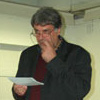 Miško Šuvaković (1954)
Miško Šuvaković (1954)
Born in Belgrade. He received his Ph.D in 1993 at the Faculty of Fine Arts, University of Arts in Belgrade. He is Professor at the Faculty of Music Art. He teaches Art Theory at Interdisciplinary Studies at the University of Arts. He teaches History and Theory of Contemporary Art as Guest Lecturer at the School of Architecture in Belgrade. He also teaches Performing Arts Theory as Guest Lecturer within the frame of the Philosophy and Theory of Visual Culture programme at the Faculty of Humanistic Studies in Koper. He was member of the conceptualist group 143 (1975-80) as well as member of the informal theoretical community “Community for Space Research “ (1982-89). He participated in the editorial work on the magazines “Catalogue 143” (Belgrade, 1976-77), “Mental Space” (Belgrade, 1982-87), “Transcatalogue” (Novi Sad, 1995-98), “Walking Theory” (Belgrade, from 2001), the magazine “Difference” (Tuzla, 2002), “Sarajevo Notebooks” (Sarajevo, Zagreb, Belgrade, Ljubljana, 2005), “Art Look” (Warszaw, 2006). He is Honorary member of Slovenian Aesthetics Association. He has published the following books: Language Scenes (1989), Pas Tout (1994), Prolegomena for Analytical Aesthetics (1995), Postmodernism (1995), The Asymmetrical Other (1996), Aesthetics of Abstract Painting (1998), Glossary of Modern and Post-modern Visual Arts and Theory after 1950 (1999), Paragrams of body/figure (2001), Martek-Fatal Figures of Artist: Essays on 20th-Century Art and Culture in South-Eastern, Eastern and Central Europe through the work of Vlado Martek (2002), Impossible Histories – Historical Avant-gardes, Neo-avant-gardes, and Post-avant-gardes in Yugoslavia, 1918-1991 (2003), The Politics of Painting (2004), Glossary of Contemporary Art (2005), Discursive Analysis (2006), Case Studies (2006) and Farenheit 387: Theoretical Confessions (2006) etc.